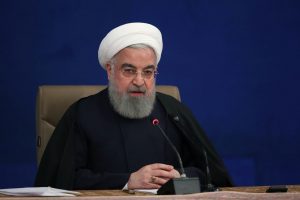
With the flurry of normalization agreements that Israel has reached over the last few months, you’d think that we are nearing the end of the Middle-East conflict. I wish it were that easy. These agreements, as great as they are, are mainly business arrangements that appear lucrative to both sides. As long as they yield profit, “peace” will remain. But if they stop doing so, the relations will cool off again. Either way, no real gain (other than economic) has been made by the recent agreements, and no real loss will occur if they are gone. What really counts is our relationships with those who have declared war on us. However, they count not because of what peace with them means for the region, but because of what it means about us, the Israeli people living in Israel.
It is clear that the normalization agreements with Arab countries that have no active conflict with Israel focus on the economic benefits that both sides gain from them. In that sense, I think that Prime Minister Netanyahu’s dealing with these countries is brilliant. However, things get complicated when concerning peace with countries such as Iran, where the motivation is religious.
First, Iranians are very clever people. From our perspective, we are not in conflict with Iran more than we are with any other country. I understand that they need to show their power and want to position themselves as the spearhead of the resistance to the existence of the State of Israel, but in the end, this struggle only drains their strength and doesn’t help them.
However, although we do not consider them enemies, peace with them depends on us and not on them. Wherever there is a conflict, with Israel or not with Israel, resolving it depends on Israel, and for one and only reason: Nations are fighting against us, and against each other, because we are fighting among ourselves. Israel is the barometer of the world. When we fight among each other, it incites and intensifies wars all over the world, and the nations hate us for it, even when those wars look as if they are unrelated to us.
We may not see the connection, and the whole notion may seem bizarre to us, but if you look at the history of the world, you’ll notice that Israel and the Jews are always blamed for wars. Many historians have already noticed it and decry the nations’ relentless tendency to make Israel the perpetual scapegoat. However, you cannot refute the scapegoat argument when people’s anger with Israel is genuine and comes from their gut feeling. Many people who hate Israel have never been to Israel, don’t know where it is, never spoke to an Israeli person, never met a Jew, and can’t even explain why they think their troubles are Israel’s fault. But what can you do if they feel this way? You can’t reason with hatred; reason and feelings work on two parallel planes and the feeling always prevails.
When Israel unite among themselves, it projects calm throughout the world and conflicts the world over subside. This is why The Book of Zohar writes (Toldot, 171), “When the good inclination [people’s kindness] prevails, his enemies, too, make peace with him.” Even more explicitly, in the portion Aharei Mot, The Zohar writes, “‘How good and how pleasant it is for brothers to also sit together.’ These are the friends as they sit together and are not separated from each other. At first, they seem like people at war, wishing to kill one another … then they return to being in brotherly love. …And you, the friends who are here, as you were in fondness and love before, henceforth you will also not part from one another … and by your merit, there will be peace in the world.”
In other words, we cannot complain that Iran hates us. All we need to do is watch the news and acknowledge that Iranians don’t hate us as much as we hate each other. Everyone is looking at us, and we are projecting intense internal odium. If we projected unity and solidarity, it would instantly reflect in the world. Once again, we should sink into our hearts that Iran, and any other enemy for that matter, doesn’t hate us for any other reason than our hatred for each other.
Internal peace is therefore the only peace we need to make. If we achieve it, all other agreements will come naturally and effortlessly. If we radiate internal unity, we will unite the world.
Featured in Facebook, LinkedIn, The Times of Israel